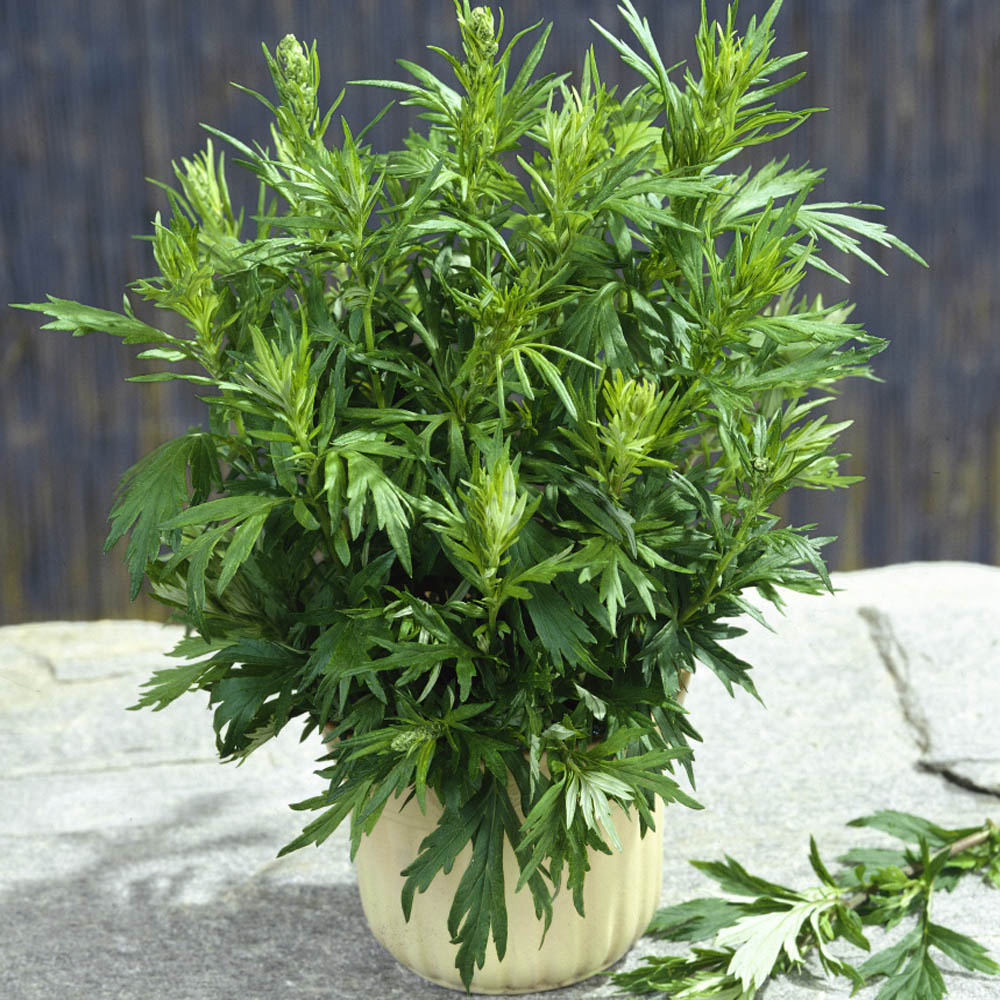New Account | Seed Mix |
Gift Certificates |AAS Winners |
Gardening Products
SEEDS: Unusual | Annuals | Perennials | Vegetables | Herbs | Trees
Mugwort Seeds
Useful gardening information
Mugwort is a perennial plant that is native to Europe and parts of Asia and Africa. It now grows in many parts of the world, including North America.Historically, mugwort has been used in traditional systems of medicine in different parts of the world. Today, mugwort taken orally (by mouth) is promoted for digestive problems, irregular menstruation, and high blood pressure. It is also promoted as a sedative, laxative, and liver tonic.
Mugwort lotion applied topically (to the skin) is promoted for itching caused by hypertrophic scars (visible, raised scars that can sometimes cause restricted movement of muscles, joints, and tendons).

H595 Mugwort ( Artemisia vulgaris )
A perennial herb with a long history. This is an aromatic plant, thought to promote and enhance dreaming during sleep. It has been used over many centuries as a bitter-tasting tonic for digestive disorders and as a flavoring agent in cooking and distilling. The dried leaves have antifungal and antiseptic properties, too.
During the summer, mugwort displays small red, pink, orange, and yellow flowers. Although they aren't as showy as a lot of prized garden plants, they look lovely in dried flower arrangements.
Their height means they can act as an attractive backdrop for smaller border or walled garden plants, and they also give off a pleasant sage-like fragrance. Many cultures have used mugwort in teas and traditional foods. In Europe it was used to flavor beer before the introduction of hops. Only dried plants were used because it was believed that the fresh leaves did not have the same flavor properties.
Mugwort contains small amounts of thujone which is a spasmodic. In small amounts, it isn’t harmful but if eaten in large quantities, it is toxic. Pregnant women should never consume mugwort because of the danger of early labor and miscarriage.
A perennial for zones 3-8. Grows about 40-60 inches in garden soil.
During the summer, mugwort displays small red, pink, orange, and yellow flowers. Although they aren't as showy as a lot of prized garden plants, they look lovely in dried flower arrangements.
Their height means they can act as an attractive backdrop for smaller border or walled garden plants, and they also give off a pleasant sage-like fragrance. Many cultures have used mugwort in teas and traditional foods. In Europe it was used to flavor beer before the introduction of hops. Only dried plants were used because it was believed that the fresh leaves did not have the same flavor properties.
Mugwort contains small amounts of thujone which is a spasmodic. In small amounts, it isn’t harmful but if eaten in large quantities, it is toxic. Pregnant women should never consume mugwort because of the danger of early labor and miscarriage.
A perennial for zones 3-8. Grows about 40-60 inches in garden soil.
Share a growing tip or recipe and help other gardeners!
Click on the Contact Form link, place "Tip" in the name line and fill in your information. If we accept your Mugwort growing tip or recipe, we will post it on this page.
